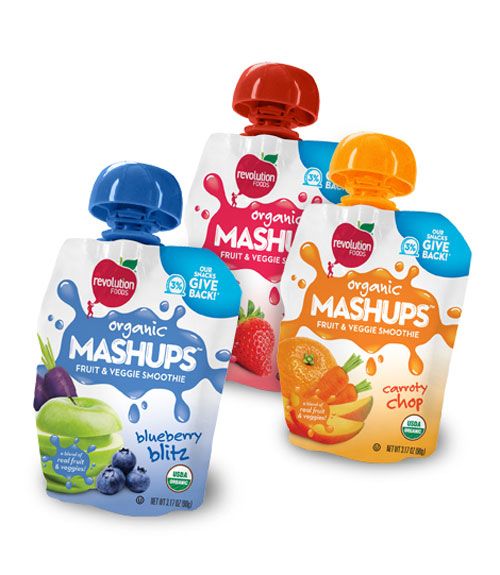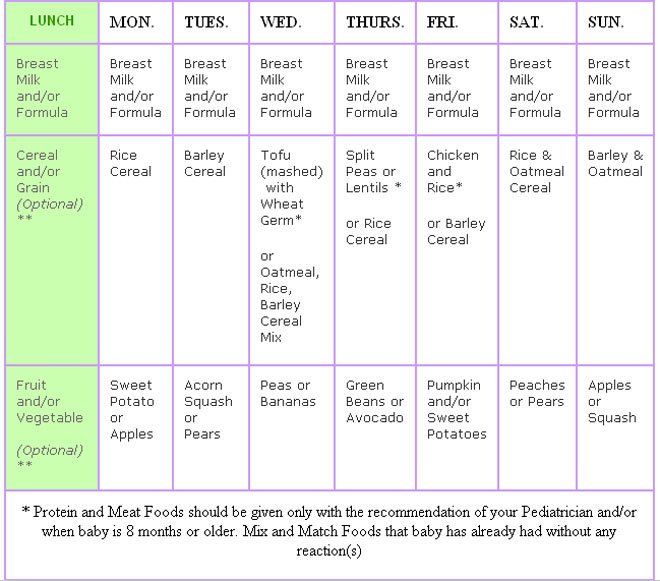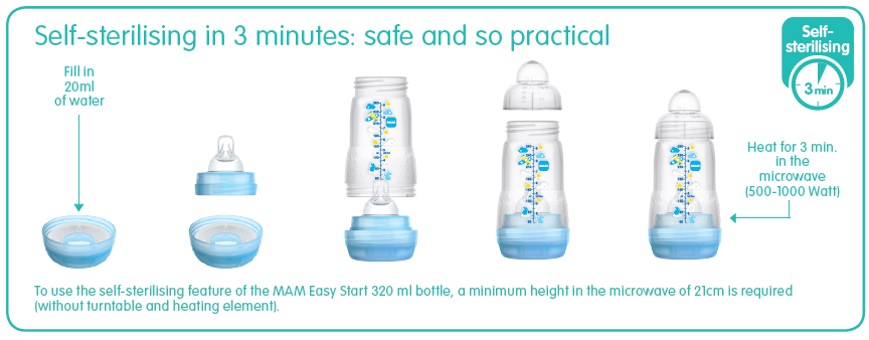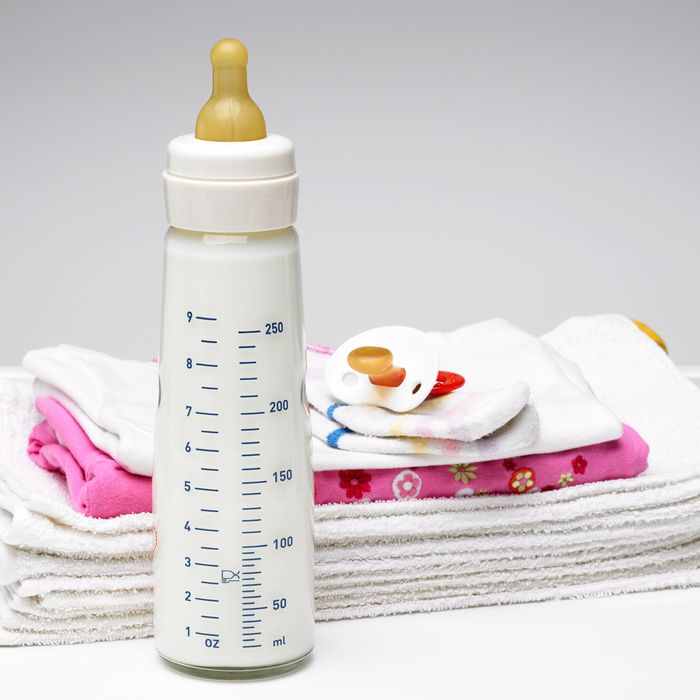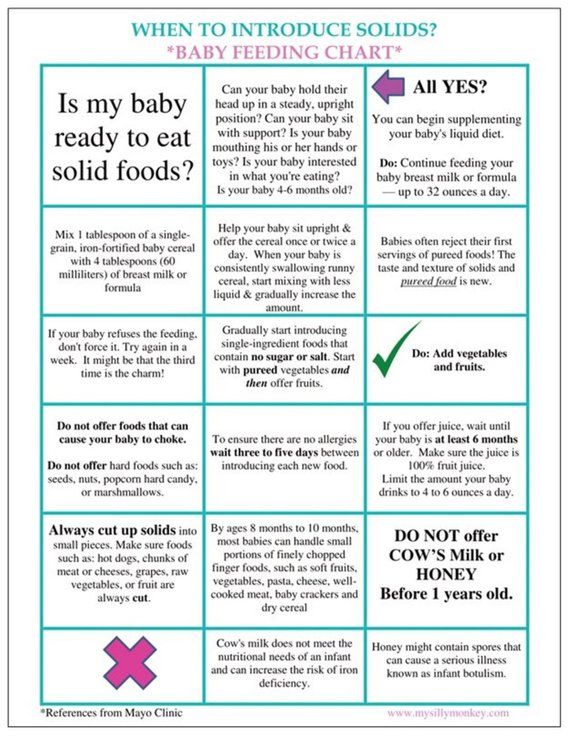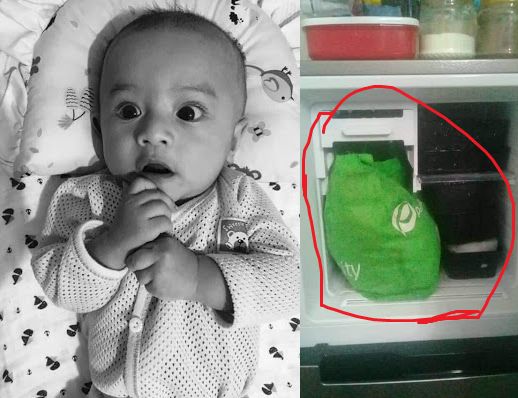When to feed baby cereal at night
Infant sleep and bedtime cereal
Clinical Trial
. 1989 Sep;143(9):1066-8.
doi: 10.1001/archpedi.1989.02150210100027.
M L Macknin 1 , S V Medendorp, M C Maier
Affiliations
Affiliation
- 1 Department of Pediatrics, Cleveland Clinic Foundation, OH 44195-5045.
- PMID: 2672785
- DOI: 10.1001/archpedi.1989.02150210100027
Clinical Trial
M L Macknin et al. Am J Dis Child. 1989 Sep.
. 1989 Sep;143(9):1066-8.
doi: 10.1001/archpedi.1989.02150210100027.
Authors
M L Macknin 1 , S V Medendorp, M C Maier
Affiliation
- 1 Department of Pediatrics, Cleveland Clinic Foundation, OH 44195-5045.
- PMID: 2672785
- DOI: 10.1001/archpedi.1989.02150210100027
Abstract
We studied whether feeding infants rice cereal before bedtime promotes their sleeping through the night. One hundred six infants were randomly assigned to begin bedtime cereal feeding (1 tablespoon per ounce in a bottle) at 5 weeks or at 4 months of age. Caretakers recorded the infant's sleep from age 4 to 21 weeks for one 24-hour period per week. Sleeping through the night was defined as sleeping at least 8 consecutive hours, with the majority of time being between the hours of midnight and 6 AM. The results were also reviewed changing the requirement from 8 hours to 6 hours. There was no statistically significant trend or a consistent tendency of one group to have a higher proportion of sleepers than the other. Therefore, feeding infants rice cereal in the bottle before bedtime does not appear to make much difference in their sleeping through the night.
One hundred six infants were randomly assigned to begin bedtime cereal feeding (1 tablespoon per ounce in a bottle) at 5 weeks or at 4 months of age. Caretakers recorded the infant's sleep from age 4 to 21 weeks for one 24-hour period per week. Sleeping through the night was defined as sleeping at least 8 consecutive hours, with the majority of time being between the hours of midnight and 6 AM. The results were also reviewed changing the requirement from 8 hours to 6 hours. There was no statistically significant trend or a consistent tendency of one group to have a higher proportion of sleepers than the other. Therefore, feeding infants rice cereal in the bottle before bedtime does not appear to make much difference in their sleeping through the night.
Similar articles
-
Preventing sleeping problems in infants who are at risk of developing them.
Nikolopoulou M, St James-Roberts I.
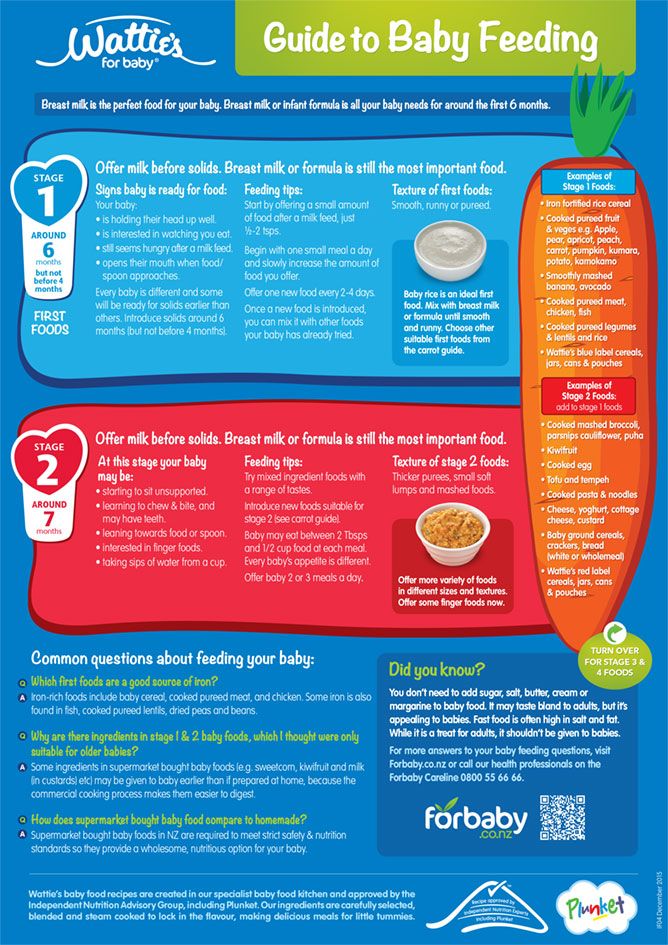 Nikolopoulou M, et al. Arch Dis Child. 2003 Feb;88(2):108-11. doi: 10.1136/adc.88.2.108. Arch Dis Child. 2003. PMID: 12538307 Free PMC article. Clinical Trial.
Nikolopoulou M, et al. Arch Dis Child. 2003 Feb;88(2):108-11. doi: 10.1136/adc.88.2.108. Arch Dis Child. 2003. PMID: 12538307 Free PMC article. Clinical Trial. -
Factors associated with fragmented sleep at night across early childhood.
Touchette E, Petit D, Paquet J, Boivin M, Japel C, Tremblay RE, Montplaisir JY. Touchette E, et al. Arch Pediatr Adolesc Med. 2005 Mar;159(3):242-9. doi: 10.1001/archpedi.159.3.242. Arch Pediatr Adolesc Med. 2005. PMID: 15753267
-
Improved circadian sleep-wake cycle in infants fed a day/night dissociated formula milk.
Cubero J, Narciso D, Aparicio S, Garau C, Valero V, Rivero M, Esteban S, Rial R, Rodríguez AB, Barriga C. Cubero J, et al. Neuro Endocrinol Lett.
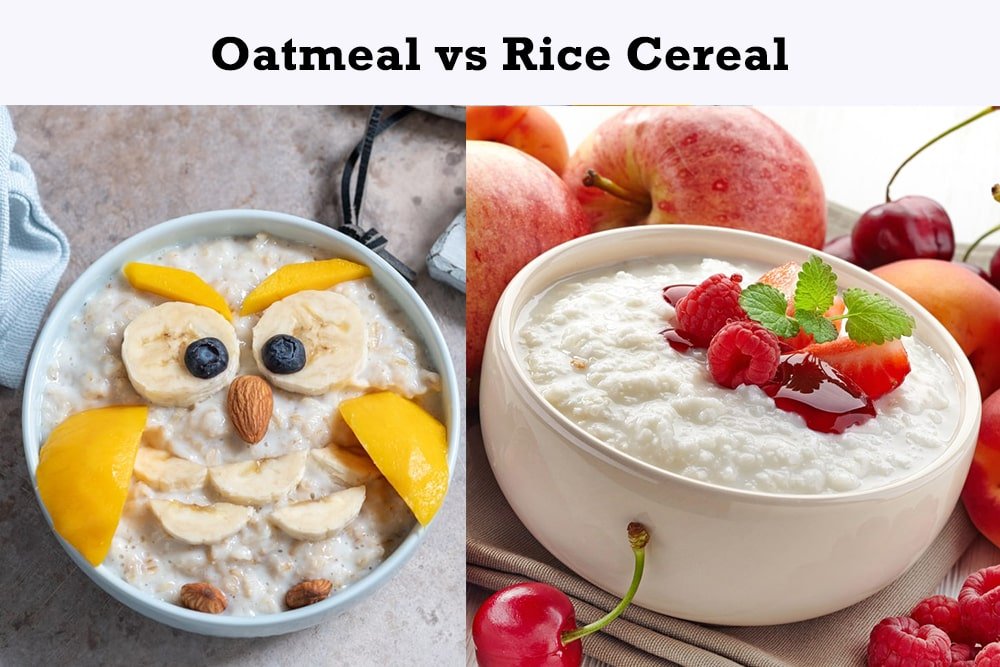 2006 Jun;27(3):373-80. Neuro Endocrinol Lett. 2006. PMID: 16816833 Clinical Trial.
2006 Jun;27(3):373-80. Neuro Endocrinol Lett. 2006. PMID: 16816833 Clinical Trial. -
Interventions for influencing sleep patterns in exclusively breastfed infants.
Renfrew MJ, Lang S, Martin L, Woolridge M. Renfrew MJ, et al. Cochrane Database Syst Rev. 2000;(2):CD000113. doi: 10.1002/14651858.CD000113. Cochrane Database Syst Rev. 2000. PMID: 10796136 Review.
-
[Sleep problems and bedtime routines in infants in a cross cultural perspective].
Louis J, Govindama Y. Louis J, et al. Arch Pediatr. 2004 Feb;11(2):93-8. doi: 10.1016/j.arcped.2003.11.012. Arch Pediatr. 2004. PMID: 14761729 Review. French.
See all similar articles
Cited by
-
Infant feeding practices and sleep at 1 year of age in the nationwide ELFE cohort.
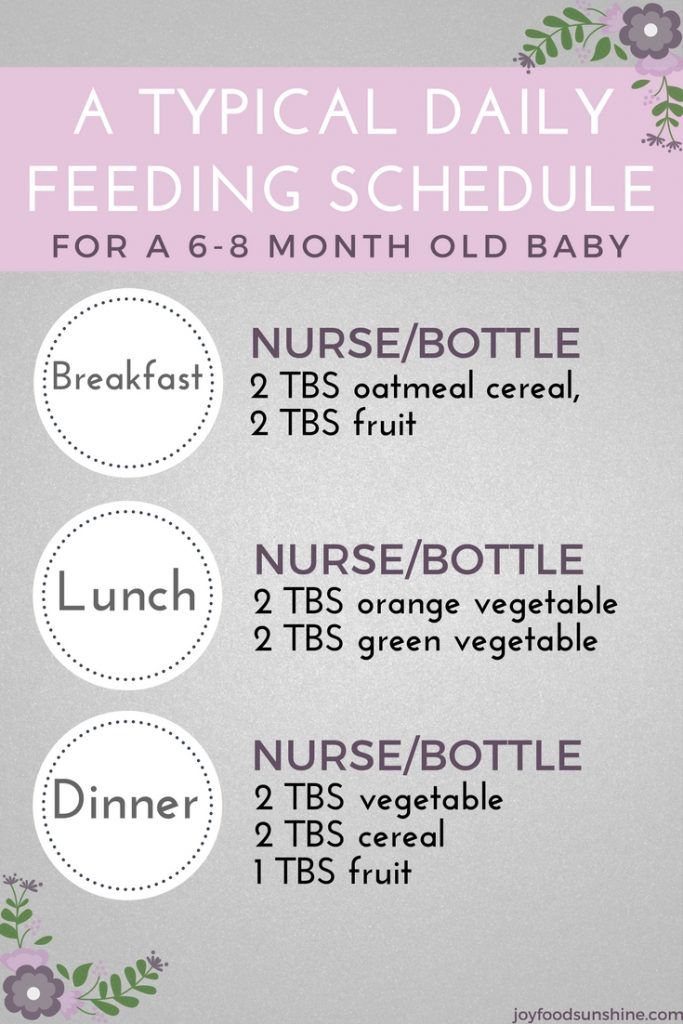
Messayke S, Davisse-Paturet C, Nicklaus S, Dufourg MN, Charles MA, de Lauzon-Guillain B, Plancoulaine S. Messayke S, et al. Matern Child Nutr. 2021 Jan;17(1):e13072. doi: 10.1111/mcn.13072. Epub 2020 Sep 10. Matern Child Nutr. 2021. PMID: 32914572 Free PMC article.
-
Association of Early Introduction of Solids With Infant Sleep: A Secondary Analysis of a Randomized Clinical Trial.
Perkin MR, Bahnson HT, Logan K, Marrs T, Radulovic S, Craven J, Flohr C, Lack G. Perkin MR, et al. JAMA Pediatr. 2018 Aug 6;172(8):e180739. doi: 10.1001/jamapediatrics.2018.0739. Epub 2018 Aug 6. JAMA Pediatr. 2018. PMID: 29987321 Free PMC article. Clinical Trial.
-
Feeding methods, sleep arrangement, and infant sleep patterns: a Chinese population-based study.
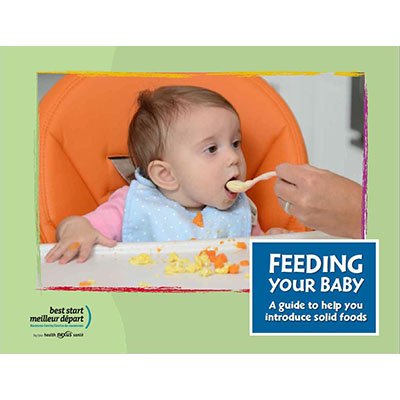
Huang XN, Wang HS, Chang JJ, Wang LH, Liu XC, Jiang JX, An L. Huang XN, et al. World J Pediatr. 2016 Feb;12(1):66-75. doi: 10.1007/s12519-015-0012-8. Epub 2015 Mar 9. World J Pediatr. 2016. PMID: 25754749
-
Opportunities for the primary prevention of obesity during infancy.
Paul IM, Bartok CJ, Downs DS, Stifter CA, Ventura AK, Birch LL. Paul IM, et al. Adv Pediatr. 2009;56(1):107-33. doi: 10.1016/j.yapd.2009.08.012. Adv Pediatr. 2009. PMID: 19968945 Free PMC article. Review.
Publication types
MeSH terms
The Rationale for the Addition of Rice Cereal to a Nighttime Bottle | Healthy Eating
By Sharon Perkins
Bleary-eyed parents desperate for a full night's sleep may longingly eye the rice cereal box.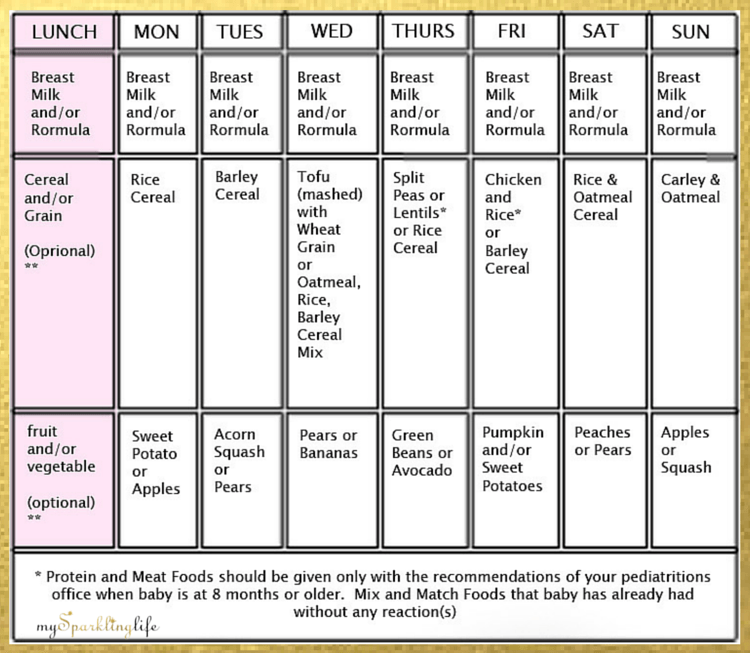 You might know someone who swears that adding cereal to your baby's evening bottle helped him sleep through the night. It sounds reasonable -- if your baby gets filled up, he might sleep longer. But adding rice cereal to help your baby sleep longer isn't a good idea. However, your doctor might suggest adding cereal to the night bottle to prevent reflux, regurgitation of food that can cause painful heartburn that wakes your baby.
You might know someone who swears that adding cereal to your baby's evening bottle helped him sleep through the night. It sounds reasonable -- if your baby gets filled up, he might sleep longer. But adding rice cereal to help your baby sleep longer isn't a good idea. However, your doctor might suggest adding cereal to the night bottle to prevent reflux, regurgitation of food that can cause painful heartburn that wakes your baby.
The Longer Sleep Theory
The trouble with putting cereal in your baby's nighttime bottle to help him sleep longer is that studies haven't shown that it makes any difference. A Cleveland Clinic Foundation study published in the September 1989 issue of the "American Journal of Diseases of Children" examined the effects of adding 1 tablespoon of rice cereal per ounce of milk to the formulas of infants who were 5 weeks old or 4 months old. No significant trend toward increased stretches of sleep occurred in either group. The reason for this may be that babies have innate programming to wake in the night in the first few months of life due to their immature nervous systems and the need to socialize and bond with their parents, lactation consultant Jan Barger explains on Baby Center.
Aspiration Risks
Feeding your baby solid foods too early can pose several health risks, including the possibility of aspirating food into the lungs. Babies under age 4 months aren't able to swallow solid foods as effectively as milk, MayoClinic.com explains. In addition, you need to enlarge the nipple hole to allow the thickened formula to pass through, which also increases the risk of choking from formula flowing faster than your baby can swallow. Frequent aspiration can cause breathing problems or cough.
Obesity Risks
Adding cereal to your baby's bottle could increase his risks for becoming overweight or obese, according to pediatrician and author Dr. Alan Greene. Babies have an appetite set point that tells them when they've had enough milk. When you add cereal to the bottle, the baby might still drink the same amount of milk, but his calorie intake will rise due to the added cereal. Overeating at a young age could interfere with your baby's ability to self-regulate his diet, Green theorizes.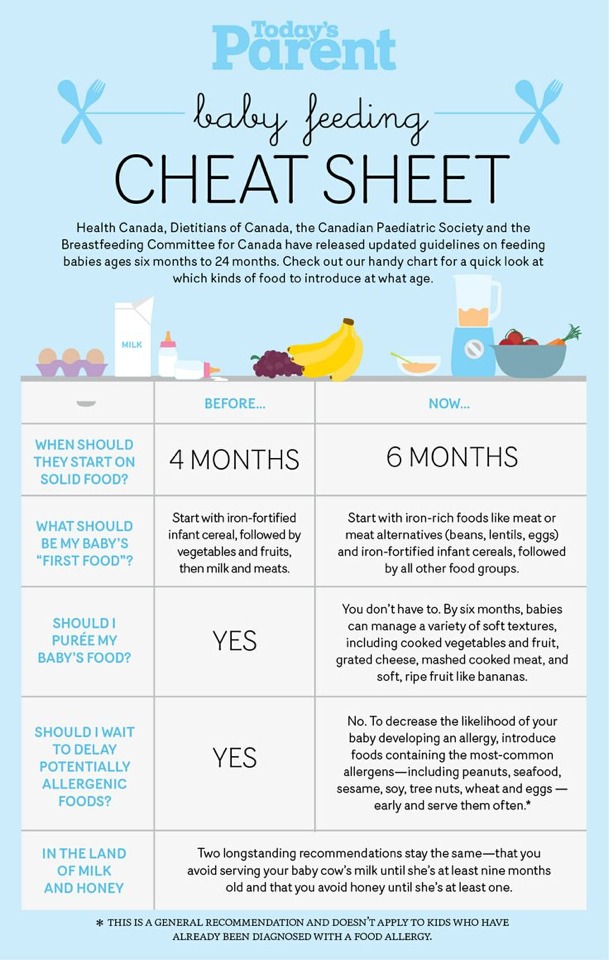 The American Academy of Pediatrics does not support the practice of putting cereal in bottles due to the increased risk of obesity.
The American Academy of Pediatrics does not support the practice of putting cereal in bottles due to the increased risk of obesity.
Reflux and Added Cereal
More than half of all infants suffer from gastroesophageal reflux up to age 3 months, according to the National Digestive Diseases Information Clearinghouse. Usually abbreviated to reflux or GER, this disorder causes regurgitation of stomach contents into the esophagus. Reflux can cause irritability, poor feeding, spitting, vomiting or frequent coughing. If your baby has severe reflux or reflux that lasts longer than three months, your pediatrician might recommend adding 1 tablespoon of cereal to 2 ounces of formula and keeping your baby upright for 30 minutes after feeding. Do this only if your doctor recommends it and follow his instructions exactly. Feed slowly to reduce the risk of choking. A Polish review of available studies published in the December 2008 issue of "Pediatrics" found that thickened formula with cereal was moderately effective in decreasing reflux in healthy infants.
- Baby Center: Will My Baby Sleep Better If I Add Cereal to His Bottle at Night?
- Dr. Greene: Baby Bottles and Cereal
- American Journal of Diseases of Children: Infant Sleep and Bedtime Cereal
- National Digestive Diseases Information Clearinghouse: Gastroesophageal Reflux in Infants
- Advances in Pediatrics: Opportunities for the Primary Prevention of Obesity During Infancy
- Pediatrics: The Effect of Thickened-Feed Interventions on Gastroesophageal Reflux in Infants: Systematic Review and Meta-Analysis of Randomized, Controlled Trials
- Minnesota Department of Health: Infant Cereal
A registered nurse with more than 25 years of experience in oncology, labor/delivery, neonatal intensive care, infertility and ophthalmology, Sharon Perkins has also coauthored and edited numerous health books for the Wiley "Dummies" series. Perkins also has extensive experience working in home health with medically fragile pediatric patients.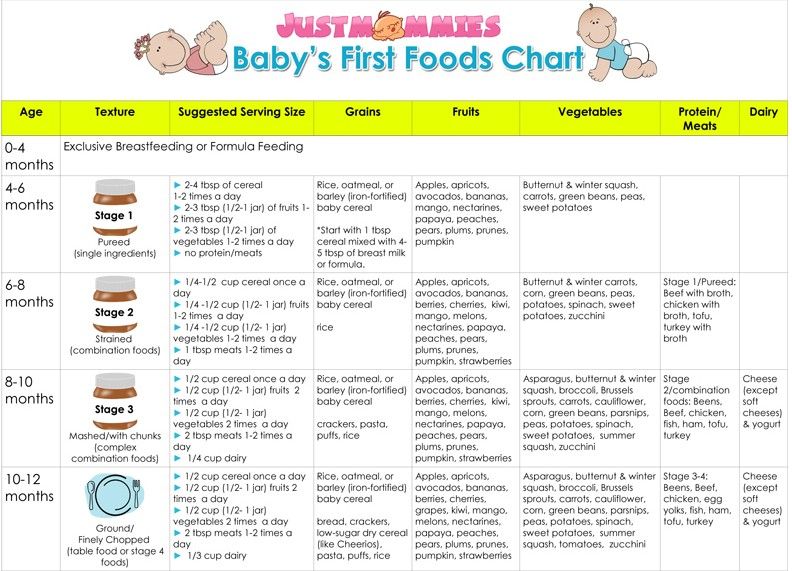
What kind of porridge before going to bed is good for a small child
The content of the article
- 1 Is it possible to feed a child with porridge at night?
- 1.1 Dairy-free porridge
- 1.2 Milk porridge
- 1.3 Ready-made milk porridge
A child's body is more sensitive to external stimuli than an adult's, so it is necessary to feed him. Many foods are forbidden for babies to eat. In addition, attention should be paid to when and what kind of food enters the gastrointestinal tract of children. For breakfast, it is best to give cereals, for lunch, meat. And what to give for dinner? Today we will talk about whether porridge is useful before bedtime, and what kind of porridge to give the child at night.
Everyone knows that dinner should be light but nutritious. The "lightness" of food depends on the individual characteristics of the baby and the daily routine. A full meal is recommended to organize up to 20 hours. This tactic does not work with children under 2 years old. At this age, a late meal is acceptable.
Many mothers prefer to feed cereals in the evening. This is a healthy product that contains a large amount of nutrients. For children under 2 years old, a thinner porridge is usually prepared as a late dinner, or they are given a purchased one. Thanks to such food, the baby sleeps all night without waking up from hunger. It is recommended to give the baby dinner an hour before bedtime. So he will be full all night, but the food will have time to digest a little, which will reduce the load on the gastrointestinal tract. However, the real thick porridge should not be given so late. Because of such food, the baby’s body does not rest at night, but digests food.
It is important to remember that food is not given by force. According to Dr. Komarovsky, if the child is not hungry, there is no need to force him to eat everything to the end. Firstly, overeating creates unnecessary stress on the stomach, and secondly, it forms the wrong eating habits, which in adulthood can lead to eating disorders.
Dairy-free porridge
It is recommended to have oatmeal, buckwheat or rice porridge for dinner. Do not add sweeteners to dairy-free porridge, but rather replace them with fruits and nuts.Dairy-free meals are considered the most useful, especially for children under one year old. For babies, the cereal is ground with a blender, after which it is boiled until tender. For older children, food is prepared according to the usual recipe.
It is recommended to choose oatmeal, rice or buckwheat for dinner. Semolina, millet and similar cereals are more difficult to digest, which can cause pain in the tummy. Nutrition experts do not recommend adding sweeteners to a dairy-free dish, it is better to replace them with fruits, nuts, etc.
Milk porridge
As a rule, children prefer dinners with milk. Pediatricians do not recommend adding sweeteners to them, but if the child does not want to eat a savory dish, you can sweeten it a little. Babies prepare a liquid porridge on the mixture. For cooking, cereals must be crushed and boiled. When the dish is ready, the prepared mixture is added to it so that it becomes liquid enough for the child to drink. Children under one year of age should not cook porridge with cow or goat milk, as such products are too heavy for the fragile gastrointestinal tract to digest. For older children, food is prepared in ordinary milk, diluting it with water as desired. Or boiled milk is added to the already cooked porridge on the water.
Remember that children often suffer from lactase deficiency or milk protein allergy, so if you notice signs of illness, you should not give this dish to your baby. You can replace regular milk with vegetable milk.
Ready-made milk porridge
Ready-made milk dishes make life much easier for mothers. For their preparation, the dry mixture must be filled with water. A special category should include products called "backfills" or "helpers". The purpose of their use is rapid saturation with a small load on the gastrointestinal tract. As a rule, when diluted, they are quite liquid, so children can drink them with a bottle.
Dr. Komarovsky has nothing against such a product. Good sleep for children is one of the most important components of health. If at the same time it is possible to minimize the load for the mother, this is only a plus. He believes that buckwheat, oatmeal, barley, millet should be chosen. A cooked homemade dish is more healthy in composition, but you don’t need to reproach yourself if you don’t have time to stand at the stove 5 times a day.
It is important to remember that such ready-made mixtures contain a large amount of sugar, which can negatively affect the baby's body, so you should not give them several times a day. It is best to feed your baby with such food just before going to bed.
Many manufacturers make such mixtures:
- Nestlé produces Happy Dreams Porridge.
It consists of 5 types of cereals and linden blossom. It has a pleasant aroma and taste, so children eat it with pleasure.
- Heep's Good Night Powder is found in every pharmacy. Children love to eat it. The composition of the product is good, it is safe to feed them to babies. There are several options for such a porridge: rice, oatmeal, etc.
- Semper produces semolina with honey in milk. Nutritionists recommend introducing it into the diet with extreme caution, since the use of honey up to 3 years should be limited, and semolina itself is among the few useful substances in comparison with other cereals. Children are advised to give it as a dessert on rare occasions, and choose something else for dinner. Semolina has a heavy composition, which is why the baby can sleep restlessly.
- Cereal porridge with chamomile from Baby is a tasty and healthy product. It contains 3 cereals, so it is not recommended to enter it into the menu for up to a year. Moms need to take note that such a dish contains a lot of gluten, so it is recommended to be careful with it.
- On the shelves of stores you have probably seen ready-made cereals from Fruto Nanny. They contain a lot of sugar, but it will not harm the baby if given in limited quantities.
- Ready mixes "Malyutka" are familiar to us since childhood. Naturally, the constituent components have changed since then. It includes as many as 7 cereals, so pediatricians recommend feeding it at night closer to 2 years.
Thus, we see that children can eat porridge in the evening, and often even need to. This will improve sleep by preventing. You can cook semi-liquid masses from cereals yourself, or buy ready-made ones. Remember, ready-made formulas often contain a lot of sugar and other additives that are best not given to the baby, so you need to carefully read the composition of the product.
Up to what age to feed the baby at night and how to replace formula
Infant formula is only a necessary replacement for mother's milk in the absence of sufficient lactation or underweight in the infant. In all other respects, the infant formula feeding algorithm remains the same as with breastfeeding. The baby also needs nightly feedings about every 3-4 hours. This is due to scientifically proven facts. Babies up to a year old have an accelerated metabolism, food is digested faster, and naturally, they experience hunger at night. Also, any anxiety of the baby at night forces him to demand his mother's participation, and of course - food as a sedative. There is even a theory that children are genetically woken up to eat to avoid "Sudden Infant Death Syndrome" in their sleep.
But also can't it continue indefinitely? The child grows, develops actively, from the age of 6 months receives a variety of complementary foods, and over time should form a normal daily routine. And for this you need to figure out: how to wean a child at night to eat the mixture in the most gentle ways.
Up to what age to give the mixture at night
Experts differ on this issue, but the average age when you can do without night feedings is nevertheless deduced. Infants with normal development can sleep peacefully at night without formula 10-12 hours from 9-12 months. Of course, if parents do not consider it necessary to restrict their child in nutrition, they can safely continue to feed their child at night and beyond. But they must be aware that, firstly, over time, these periods of eating become just a habit for the baby. And secondly, mothers should also think about their own well-being after sleepless nights. So, the approximate age of weaning a child from night feedings has been determined, it remains to find out how to replace the mixture for the night after a year for the first time of the transition to a new regimen.
Night formula alternative
Formula feeding formula is extremely nutritious and delicious for your baby. Therefore, the nightly replacement should be unequal, so that the baby subsequently feels that he does not need to wake up for such food. For these reasons, many mothers, thinking about how to replace the mixture for the night, use not the best products. It is strongly not recommended to use compotes or juices, because the ultimate goal is a complete and painless rejection of night food. In addition, fruit drinking can cause flatulence and abdominal pain - not the most favorable factors for restful sleep.
It is better to replace the traditional food at first with a well-diluted mixture, and then with pure water. At the same time, you need to try to slightly shift the period of falling asleep and provide the child with peace and a hearty dinner before going to bed. During the gradual transition to a new way of life, it is not necessary to immediately offer a diluted mixture to the awakened baby at night, it is better to try to calm him down in a different way - caress, rock him.

